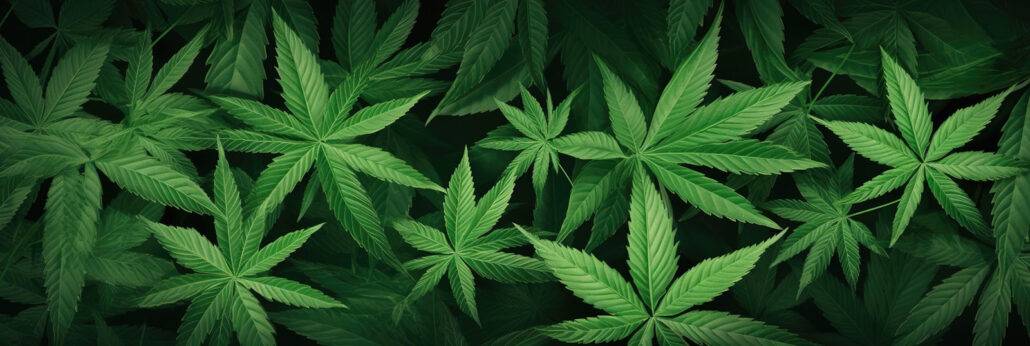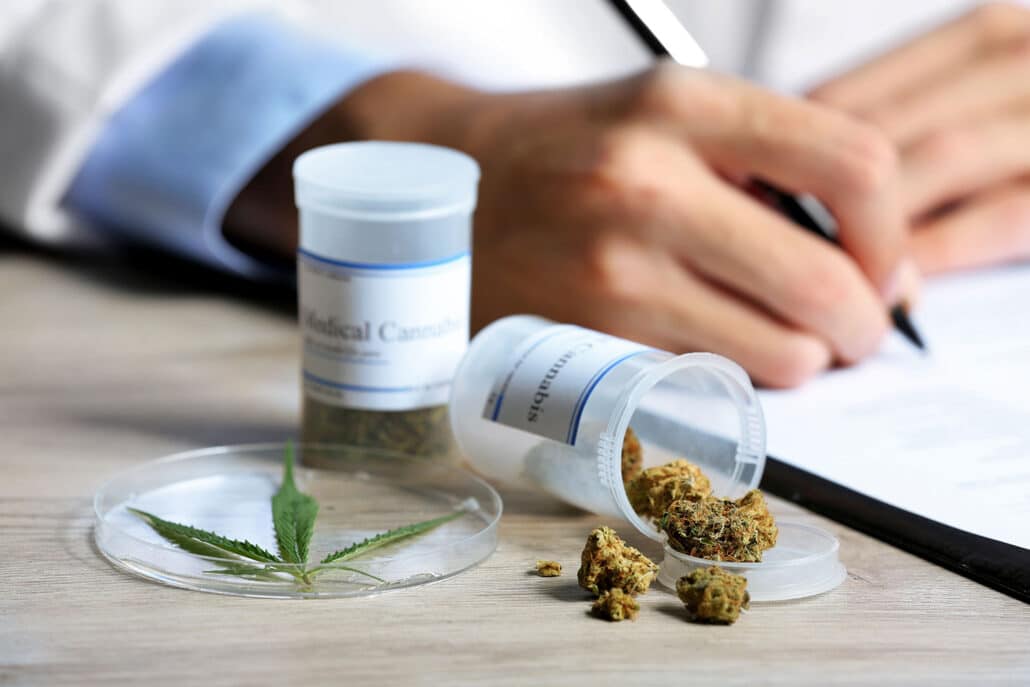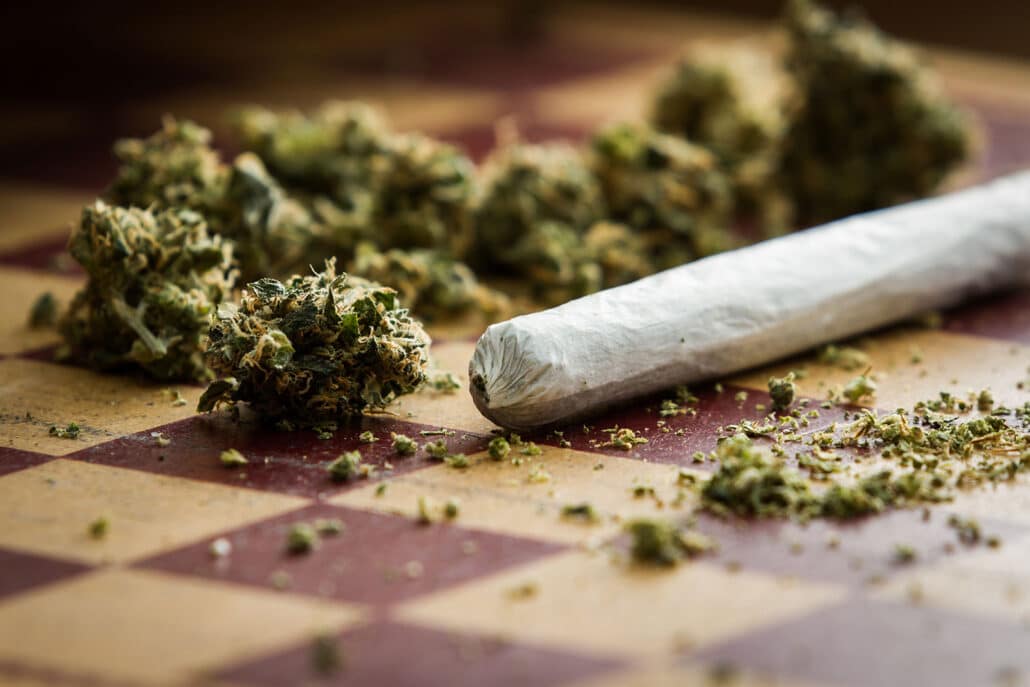Cannabinoids refer to substances that are naturally found in the cannabis plant. These would include cannabidiol (CBD) and any and all of the known substances, psychoactive or not, found within the hemp and marijuana plants, such as delta-8, delta-9, delta-10 and delta-11.

As of this writing, cannabis products remain federally illegal, even though many states (about half) have completely decriminalized it for personal recreational use. CBD is federally legal as long it’s derived from hemp plants containing less than 0.3 percent THC, but the substance remains illegal in some states, such as Alabama and Arkansas.
Table of Contents
What is Delta-11 THC?
Delta-11 THC is a minor cannabinoid found in trace amounts in certain strains of the cannabis plant. It can also be (and usually is) produced from CBD. Because it’s a new cannabinoid, not that much is known about it or its potential benefits. It appears to be stronger than delta-9 by about threefold and may offer a more mellow high than delta-9. It may compare more to delta-8 in that way, but individual response to any substance can vary greatly from person to person.
Is Delta-11 THC Legal?
Because federal laws only specifically mention delta-9 THC, other cannabinoids like delta-8, 9 and 10 are not technically illegal at the federal level. However, their legal status remains a grey area. Individual states can still prohibit it, and you can be arrested and charged with a crime in those areas where it’s not legal at the state level. The same is true of all the other cannabinoids, including CBD. Be careful with these substances in the following states:
- Alaska
- Arizona
- Arkansas
- Colorado
- Delaware
- Idaho
- Iowa
- Mississippi
- Montana
- New York
- North Dakota
- Rhode Island
- Vermont
- Utah
- Washington
It’s always wise to double check on local cannabis laws before traveling.

An Introduction to the ECS
The ECS is the endocannabinoid system. This system is a network of receptor sites found throughout the human body. Most animals have an ECS, too. The body produces its own cannabinoids just like the hemp and marijuana plants do. In fact, the word endocannabinoid means “the cannabinoid within.”
These cannabinoids in the body bind to ECS receptors and are thought to be involved in certain critical body functions:
- the immune system
- appetite
- blood pressure
- pain response and inflammation
- memory and learning
- energy levels
- development of an embryo
The ECS is also a feedback system, restoring and maintaining balance in certain body systems.
There are two known main types of ECS receptors, the CB1 and the CB2. The CB1 is mainly found in the central nervous system, meaning the brain and spinal cord. The CB2 is primarily found in the peripheral body areas (meaning other than the brain and spinal cord), the skin and in immune cells.
Cannabinoids from cannabis also bind to the same receptor sites that the body’s endocannabinoids do. This is also how opiates and opioids work, too. The body produces its own opiate-like compounds called endorphins that bind to opiate receptors found in the brain and gut. These endorphins are chemically very similar to the morphine found in the opium poppy, and both endorphins and morphine bind to these same opiate receptors.
Endorphins are thought to be involved with mood and pain relief. They probably also play a strong role in the withdrawal side effects that occur when opioids are suddenly stopped.
The Entourage Effect
The marijuana plant contains at least 100 different compounds, besides CBD and delta-8, 9, 10 and 11. It also contains substances called terpenes. Terpenes are aromatic (smelly) compounds found in many plants. For example, terpenes are why an orange smells like an orange. They also give the marijuana plant its characteristic odor. In addition, terpenes are thought to have beneficial anti-inflammatory effects within the body. This may help to support the immune system.
Taken all together, the compounds in marijuana and its terpenes are called an entourage. This is important because these substances are meant to work together for the best effect. Using a single substance by itself, for example, just CBD or just delta-8, may not give the overall optimal effect of the marijuana plant because this entourage effect will have been lost.
CBD: Is it Intoxicating?
No, CBD cannot make anyone feel high. This is because it mostly binds only to the CB2 ECS receptor, which isn’t located in the brain. It’s the CB1 receptor in the brain that produces the typical cannabis intoxication, including relaxation, euphoria, hunger, red eyes and sometimes psychoactive effects, like hallucinations. Since CBD cannot access this CB1 receptor, there will be no intoxicating effect from its use.

What is THC?
THC is the abbreviation for tetrahydrocannabinol. This is the main psychoactive substance found in both marijuana and hemp plants. There are several known forms of THC:
- Delta-9
- Delta-8
- Delta-10
- Delta-11
All variants are found naturally in the marijuana plant, but delta-9 is by far the most prevalent. The others are considered minor cannabinoids, found in much lower concentrations than delta-9.
All are what are known as isomers. In chemistry, isomers share the same chemical formula (C₂₁H₃₀O₂ for THC) but not the same exact structure in their actual molecules.
In the case of THC, delta-9 is called such because a double bond is found on its ninth carbon chain. Delta-8 has its double bond on the eighth carbon chain, delta-10 THC on the tenth and delta-11 on the eleventh. For THC, this double bond affects both potency and effect. For example, delta-8 THC is about half the strength of delta-9 and tends to also be less likely to produce the anxiety that delta-9 can. Delta-11’s different double bond placement gives it an estimated potency about 3 times that of delta-9. There is some controversy about this, though. Some studies suggest delta-11 THC is less potent than delta-9; others peg it at being stronger.
All the THC isomers can be either smoked, vaped or eaten. When smoked through joints or vapes, the effect is nearly immediate but relatively short-acting. THC edibles or THC gummies take longer to kick in, but the effect is typically both stronger and longer-lasting.
What is 11 Hydroxy THC?
11 hydroxy THC is the major active metabolite of delta-9 THC. It is not the same as delta-11-tetrahydrocannabinol, and there is often confusion about this because the names look similar.
When someone ingests delta-9 THC, the body converts the substance into other compounds called metabolites. So, 11 hydroxy THC is a metabolite formed when delta-9 breaks down in the body. This is important to know because 11 hydroxy THC then converts into THC COOH, which is what cannabis urine drug tests are looking for. Whether or not your state allows THC use, you can still lose a job if you test positive in certain occupations. You can lose your freedom, too, if you’re on probation or parole and get caught with THC in your system.
Effects of Delta-11 THC
Although all THC compounds share similar intoxicating effects, not all are exactly the same. First discovered in the 1970s, delta-11 THC is often described as producing a more mellow high, similar to that of delta-8, along with feelings of:
- Relaxation
- Euphoric happiness
- Enhanced sensory experience
- Less anxiety
- Lower potential for paranoia compared to delta 9 THC

Is Cannabis Addictive?
Yes, no and maybe. THC isn’t as addictive as opioids or alcohol, no, and likely won’t produce a serious withdrawal syndrome when suddenly stopped. However, a certain group of people are at risk of developing marijuana use disorder (MUD). This means that these people will continue to use cannabis in spite of clear physical, emotional, financial and professional risks and harm. Some people do develop at least a powerful psychological addiction to THC. As with addictions to all drugs in general, teens are at a higher risk than adults.
Cannabis Withdrawal Symptoms
When heavy or daily use of THC is suddenly stopped, some individuals may notice the following symptoms:
- Insomnia
- Mood changes
- Cravings
- Anxiety
- Dry mouth
- General discomfort
These symptoms are self-limiting, peaking and easing within a week or two as the brain adjusts to the absence of the large amounts of THC it’s become used to. As the user moves through the withdrawal process, the brain will ramp up its production of its own natural endocannabinoids, and at that time, the withdrawal symptoms will stop.

Long Island Interventions
Here at Long Island Interventions, we understand. If a substance use problem has overtaken your life, we know how to help you get your life back. Addiction is a treatable brain disease, not a character flaw. Please contact us today. We look forward to helping you.
SOURCES:
- https://www.forbes.com/health/cbd/delta-8-vs-delta-9/
- https://herb.co/learn/delta-11-thc-vs-delta-9-thc-key-differences-effects#:~:text=While%20Delta%2D9%20THC%20is,those%20of%20Delta%2D9%20THC.
- https://www.healthline.com/health/cannabis-terpenes#:~:text=Terpenes%20are%20naturally%20occurring%20chemical,or%20taste%20different%20from%20others.
- https://www.medicalnewstoday.com/articles/endocannabinoid
- https://www.cbp.gov/about/history/did-you-know/marijuana
- https://cannigma.com/us-states-where-cannabis-is-legal/
- https://www.forbes.com/health/cbd/cbd-legalization-by-state/
- https://news.harvard.edu/gazette/story/2020/02/professor-explores-marijuanas-safe-use-and-addiction/
- https://nida.nih.gov/publications/research-reports/marijuana/marijuana-addictive
- https://www.verywellmind.com/what-to-expect-from-cannabis-withdrawal-22304
Published on: 2024-01-29
Updated on: 2025-05-12

